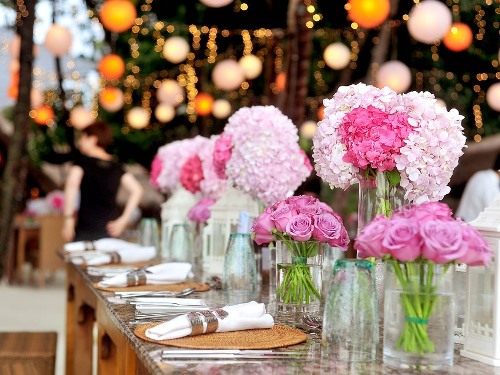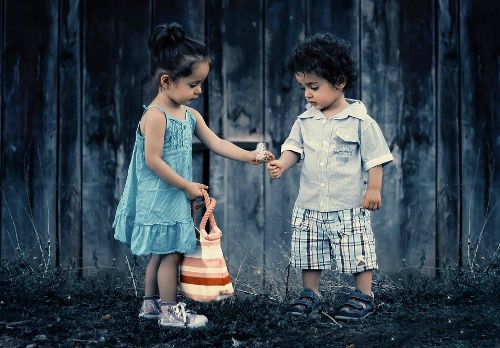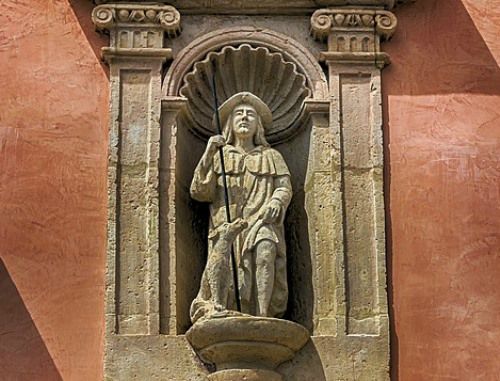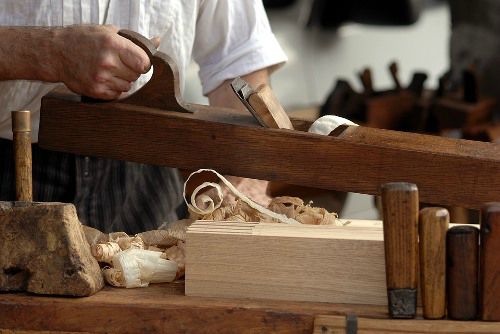Need a day off? Special occasions are numerous in Bolivia. We’ll call them this just to differentiate these days from
public holidays
or the many other
festivals
we celebrate. So, next time you need an excuse for missing work? “Oh, sorry boss, I was out celebrating Bolivian Biochemistry and Pharmacy Day...oh...oh you didn’t...really...you didn’t know about it? Huh...I thought everybody did...”

Here’s a list of the most popular celebrated occasions in Bolivia.
6 January. Día de los Reyes Magos. Epiphany/Twelfth Night.
In Bolivia, gifts are given to children on this, the Day of the Kings (Wisemen). Children place their shoes outside the door and the Three Kings (or One Mommy) fill them with candy and pastries at night.
14 February. Día de San Valentín. St. Valentine’s Day.
Bolivian’s have just begun to celebrate this day during the past ten years, probably due to the enormous influx of American families that arrived in 1997 during the oil boom. Actually, we have our own special occasion called “Lovers Day” or “Day of Love” on 21 September.
8 March. Día Internacional de la Mujer. International Women's Day.
This is actually one of the many
United Nations holidays
we celebrate in Bolivia. Probably the most popular one of all. Click on the link to take a look at the many others on the list. Why is there no equivalent to this day? Why is there no special occasion like Men’s Day?
19 March.
Día del Padre.
Father’s Day.
It’s very unusual but in Bolivia Father’s Day is celebrated with much less gusto than Mother’s Day and others. I’m not sure why this is. I’ve asked some dads how they feel about it. They all acted very nonchalant and told me they don’t need or even want the attention. I think this may occur because men are seen as the providers of the family and women as the heart of the home.
23 March.
Día del Mar.
Day of the Sea.
If Bolivia is landlocked, why celebrate the Day of the Sea? Because if you’re landlocked, it’s all you can think about – how Chile took away your coastline over 100 years ago and how much you want it back and how your economy has been stuck in a rut ever since...you can read more about this in my
history
section too.

12 April.
Día del Niño.
Children’s Day.
This is a huge deal here in Bolivia. Schools prepare plays and poetry recitals, dances and music and parents are invited to celebrate at school with the kids. Parents give their children small gifts or a special dinner or take them somewhere special on their day.
23 April. Día del Idioma Español. Spanish Language Day.
On the 23rd of April, 1616 Miguel Cervantes Saavedra, author of the “Don Quixote” novel died in Madrid. It is believed he so contributed to the Spanish language that in homage to him, April 23rd has been designated to commemorate the Spanish language. And because he also so contributed to the literary world, in some countries this is also Día del Libro (Book Day).
29 April. Día del Animal. Animal’s Day.
Celebrated in memory of Dr. Ignacio Albarracín, principal founder and promoter of the Animal Protection Society.
1 May. Día del Trabajo. Labor Day.
As in most of the world the 1st of May, or Labor Day, is actually one of Bolivia’s main public holidays. Sometimes specific unions use this day to protest, march or demonstrate their demands for better working conditions.
27 May.
Día de la Madre.
Mother’s Day.
One of the largest celebrations in Bolivia. For bakeries and florists this is the biggest sales day of the year. Literally. It can make your break your business. Mothers, and women in general, are seriously celebrated on several occasions throughout the year. Hey, who am I to complain. If it ain’t broke, don’t fix it I say.
6 June. Día del Maestro. Teacher’s Day.
Children honor their teachers with small gifts and by singing to them or reciting poems. Schools make sure there are a lot of activities to honor teachers. Commemorates the founding of the first School for Teachers in 1909 in Bolivia’s capital city of Sucre.
23 July. Día de la Amistad. Friendship Day.
International Friendship Day is 20 July (coinciding with the first landing of man on the moon) and I’m not sure why it’s on the 23rd in Bolivia. Friends give each other gifts and cards or flowers and make plans for teatime or dinner together. People really do go out of their way to show their appreciation for their friends on this day. Some people throw parties, many like to invite friends over and cook on the grill.
2 August. Día del Indio/Día del Campesino Boliviano. Day of the Bolivian Indian.
Now more commonly, and perhaps respectfully, referred to as Día de los Pueblos Originarios, or the Day of the Native Peoples, this is celebrated mostly in the Province of Iturralde in the Department of La Paz. Commemorates the death of the Quechua poet Juan Huallparimachi on 2 August 1815 as he fought for Bolivia’s independence.
6 August. Día de la Patria. Bolivian Independence Day.
This is, of course, a national public holiday also known as "Día de la Patria", Independence Day celebrates the ending of Spanish rule in Bolivia. The event is marked with school functions, patriotic parades through the streets and loud gun salutes. Military parades form a big part of the occasion.
17 August. Día de la Bandera Boliviana.
Bolivian Flag Day.
Bolivia’s first flag was created on 17 August, 1825, the same year Bolivia declared itself independent from Spain. The first Bolivian flag had three horizontal lines that were green-red-green. They were changed to yellow-red-green in 1826 and finally to its current color scheme of red-yellow-green in 1851.

17 August. San Roque. Día de los Perros. Day of the Dogs.
San Roque was the son of a French governor. Born in 1378, he dedicated his entire life to helping the poor. Some say he was able to miraculously heal the sick. One day while inside a cave he fell sick and a dog came to his aid. He is considered the patron saint of pets. Dog owners take their dogs to be blessed by a priest after which a special mass is held for dogs. Sometimes doggy costume competitions take place in Santa Cruz. Dogs are judged for most original costume.
21 September. Día del Estudiante. Students’ Day.
21 September. Día del Amor. Day of Love.
21 September. Día de la Primavera. First Day of Spring.
So three days in one are celebrated on this date. It isn’t uncommon to relate blooming passion and love with the blooms of spring, which here in the Southern Hemisphere, as you can see, is late in the year. Couples celebrate this day, the equivalent of Valentine’s Day, by spending special time together, going out for dinner, exchanging gifts, cards and flowers, and romance each other in general. Spring is also associated with youth, thus this day is also Student’s Day. Children and young people celebrate in their
schools
with games, food, raffles, and other activities and receive flowers and candies, small gifts or a special meal. Especially outstanding students are presented awards and diplomas to honor their efforts on this special occasion.
11 October. Día de la Mujer Boliviana. Bolivian Women's Day
Commemorates all Bolivian women in memory of the courageous women of all races and ages who fought together and gave their lives (actually they were brutally massacred by order of the Spanish) at the battle of La Coronilla in present-day
Cochabamba
when Bolivia (still part of Alto Perú) was fighting for its independence from Spain.
12 October. Día de la Hispanidad. Día de la Raza. Hispanic Day or Day of the Hispanic Race.
The 12th of October1492 is the date when Cristóbal Colón (known in English as Christopher Columbus) landed at Guanahaní in the Bahamas after 72 days at sea. The 12th of October is therefore considered by Spaniards as a special occasion because it was the beginning of contact between Europe and America "the encounter of two worlds ".
2 November. Todos Santos (All Souls Day) (Día de los Muertos, Día de los Difuntos). Day of the Dead.
Also known as All Saints or All Souls Day (Día de los Santos Difuntos), this is a public holiday in Bolivia. People go to the gravesites of their dead family members bringing food and drink. They adorn the grave, and have a meal with their dead, including a place setting for the dead. Bread babies and other sweets are traditionally baked and left at the gravesite.
28 December. Día de los Santos Inocentes. Day of the Innocent Infants.
On 28 December the Catholic Church commemorates the day of the Holy Innocents in memory of the collective assassination of all male children under two years of age by Herod, in his effort to kill Jesus, the Son of God. Over time this has come to be called the day of the crazy, and the day of jokes and unruly acts, similar to April Fool’s Day.
Would you believe a few years ago the prisoners in Santa Cruz’ main prison demanded
Bolivia
declare a Bolivian Prisoner’s Day?!!! Considering Bolivians’ penchant for celebrating just about any day they possibly can, much to everyone’s surprise, this did NOT happen.
The Gay community in
Santa Cruz
has held a Gay Pride parade in June of each year for the past few years. They are making efforts to have a Gay Pride Day (Día del Orgullo Gay) declared as an official holiday, but as yet have been unsuccessful.
Halloween
is not celebrated traditionally in Bolivia. However, Halloween and Todos Santos (All Souls Day) are related. Halloween is "All Souls Day Eve". However, American families and Bolivians whose children attend the American schools in
La Paz
Cochabamba and Santa Cruz, have always celebrated and there is general knowledge of what it is. With the arrival of hundreds of American families to Santa Cruz in 1997 during the oil boom, people began to pick up on the fun. I held huge Halloween parties at my house to introduce all my friends to the typical American Halloween frenzy and they loved it! It hasn’t quite caught on among the general population though, probably because people are so busy with their Day of the Dead celebrations. My Halloween page is in Spanish because I've uploaded an explanation of what Halloween is and how we celebrate it for Bolivians.
Thanksgiving of course is historically a very American holiday and is not celebrated in Bolivia. However, I have held Thanksgiving dinners to introduce my friends to the holiday and the history behind it and have found that my Bolivian friends were really happy just to set aside one day to give thanks, whether this is related to history or not, and from what I understand, it just might catch on yet!
There are SO MANY things to celebrate – you could literally go on like this all year long. Oh wait! We do go on like this all year long! If someone set aside a special occasion for something somewhere, Bolivians will celebrate it. The latest addition to this list?
17 May. Día del Internet. Internet Day.
In 2005 it was proposed (to the United Nations) that this day be declared in order to ensure everyone around the world is given more access to the Internet as a worldwide resource for learning and advancement.

In addition, the following special occasions are an opportunity to appreciate people from all walks of life, similar to Boss’ Day in the U.S.
19 March. Carpenter’s Day
26 April. Secretary’s Day
12 May. Nurse’s Day
17 May. Accountant’s Day
19 July. Auditor’s Day
6 September. Agronomy Engineer’s Day
21 September. Doctor’s Day
2 October. Veterinarian’s Day
3 October. Dentist’s Day
12 October. Soccer Referee’s Day
14 October. Lawyer’s Day
13 November. Architect’s Day
1 December. Biochemist’s and Pharmacist’s Day
6 December. Economist’s Day
Use the links below to learn about more holidays and festivals in Bolivia.








